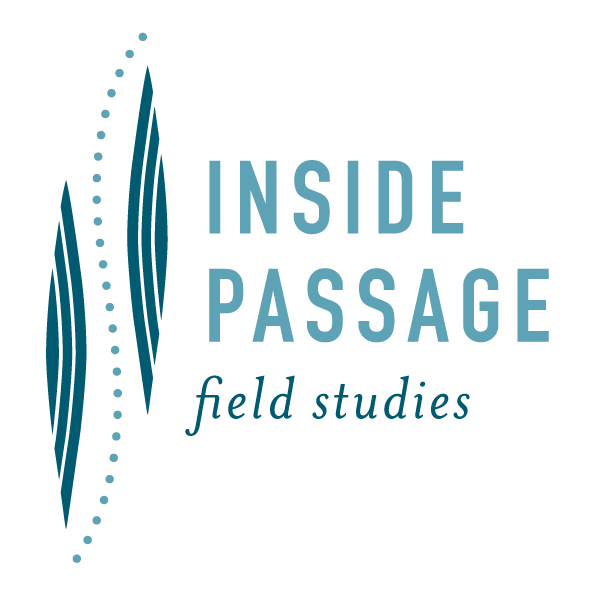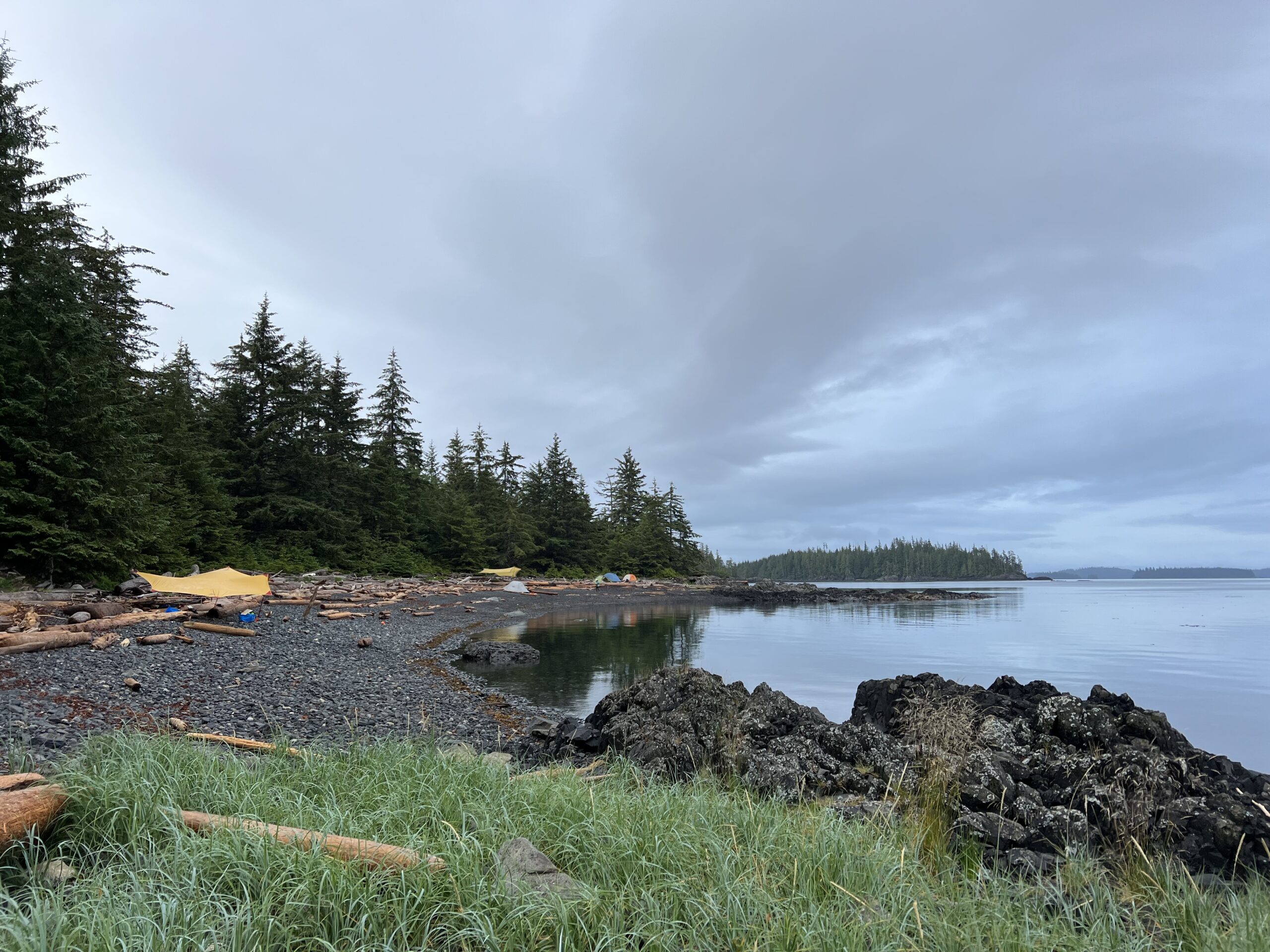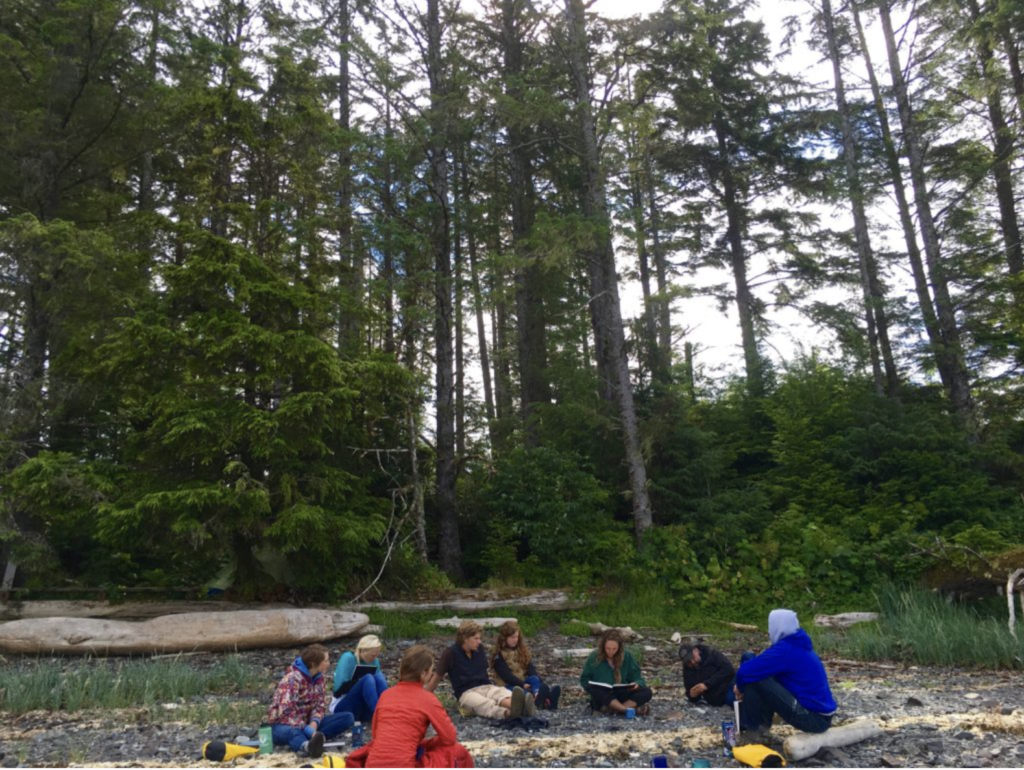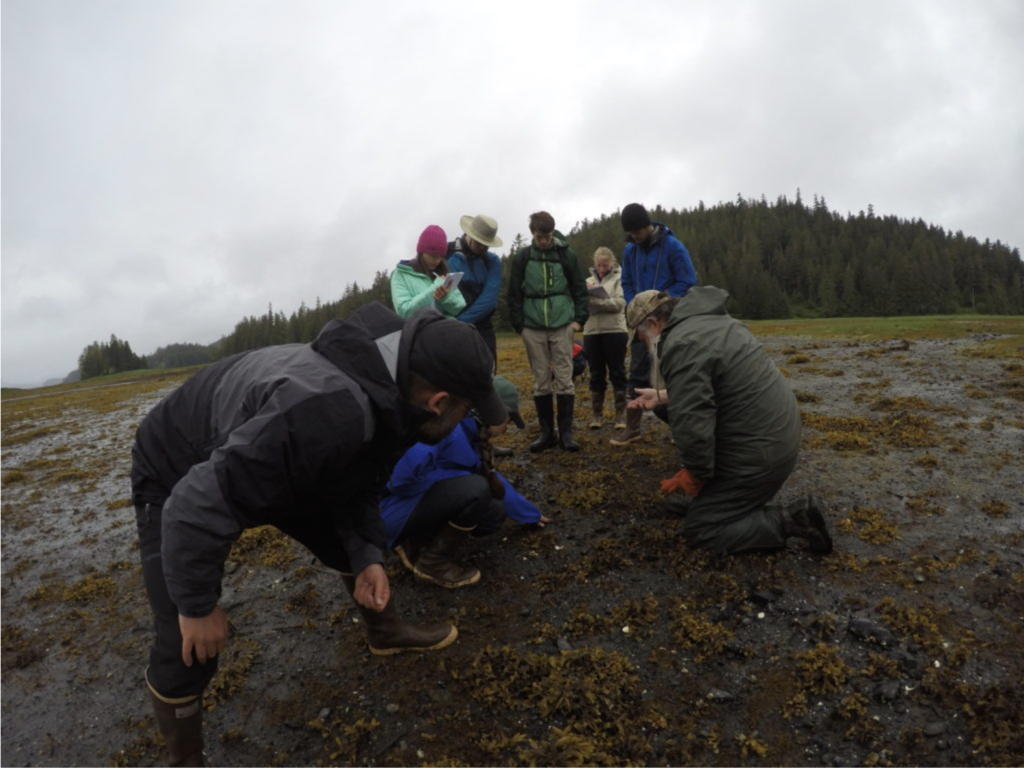Gain research experience, build field skills and explore wild Alaska.
Inside Passage undergraduate courses are a great fit for students exploring topics from biology to art to politics. No prerequisites or backcountry experience are required, and courses may meet internship, independent study, academic field camp and capstone project major requirements. Dig into the details below and take a look at our Instagram for photos and videos from our “lecture hall.”
How Courses Work
IPFS undergraduate courses are field-based and highly intensive. We explore from the Outer Coast to the Inside Passage, kayaking and camping along the way. We read, discuss, field journal, collect data, and write and present to reify learning. Travel is into and out of Ketchikan and Wrangell, Alaska and our research station in Coffman Cove is our resupply, resting place and community anchor. Since its founding, IPFS has operated courses from two to eight weeks in length, and our course offerings vary from year to year. Upon enrollment, students are provided with a detailed itinerary and other travel and logistics information. Contact us if you have questions ahead of applying. We’re glad to visit.
Past students have applied from one up to sixteen credits to degrees at their home institution; have applied a course to internship requirements; and have simply taken the course as an experience and resume builder. We recommend that students discuss their course with their advisor, professor(s) or department chair before applying. Once enrolled, IP faculty will work with each student to support their credit arrangement.
2025 Courses
3-week Community/Political Ecology of Prince of Wales Island
June 2025, dates TBA
Predicated on the assumption that while environmental problems are often common, their causes are complex and changing, this course examines two sides of one coin: the relationships in the natural environment and the relationships among the individuals and communities that depend on that environment. In the field of political ecology, it is argued that when causes are complex and changing, many solutions are specific to time and place. For three weeks, we’ll choose Prince of Wales Island and dig in. The course is divided into three units: natural history, Indigenous and settler land use, and case studies in resilience. We’ll weave reading, seminars and field journaling into days in the backcountry, then travel to the site of each case study during the final week of the course.
3-week Salmon in southern Southeast Alaska
August 2025, dates TBA
There are five species of Pacific Salmon who find their way home to southern southeast each year. Over the past decade, their populations and well-being have fallen, rebounded, changed and changed again; we don’t entirely know what is going on. This high degree of uncertainty in relationship with the salmon’s spiritual, cultural, social and economic roles have created a quiet crisis unfolding. Here in the heart of it, in rural southeast, we’ll explore the primary literature associated with salmon biology and ecology and recent population declines and participate in emerging research in stream restoration and the impacts of transboundary mining. We’ll experience the wild salmon ecosystem, stream and ocean fishing, hatcheries and processing facilities. We’ll talk with stakeholders and take stock of the role of science in decision making, knowledge building, and uncertainty in the lives and livelihoods of which salmon are a part.
Hybrid Option
Depending on their credit or internship arrangement at their home institution, students may wish to add on curriculum to be completed after their field course. Faculty work with students one-on-one to build out topics from their time in the field through readings, discussions, and written assignments. In the past, individual work has ranged from theoretical to practical, and has included traditional academic writing, data collection and analysis for collaborative research, journalistic projects, and contributions to community efforts like grant writing and reporting.
2025 Course Costs
Fees paid to Inside Passage include instruction and programming, kayaking and camping equipment, field research and writing equipment, ground and water transport, group dinners, and all course texts. IP’s scholarship fund can support students with demonstrated need and has offset costs for about a third of our students since 2012. Students may apply for a scholarship by filling out the scholarship portion of the course application.
| Due | Cost | |
| Application fee | $150. | |
| 14 days after your acceptance email arrives | Course deposit (non-refundable) | $500. |
| 30 days after your acceptance email arrives (or contact us to learn more about payment plans) | Program fee (subject to cancellation policy) | $3800. |
| Total | $4,450. |
You are responsible for other course-related expenses. They will include,
(1) travel into Ketchikan and out of Wrangell, Alaska on the days your course begins and ends (estimate ticket prices on alaskaair.com and delta.com),
(2) individual breakfast and lunch while on course,
(3) personal outdoor equipment. You’ll receive an equipment list in your enrollment packet, or you can request one from us ahead of time; and,
(4) health insurance. Students must maintain their own health insurance while on course with Inside Passage.
Inside Passage Field Studies does not file 1098-T forms for program costs. The institution awarding your academic credit is responsible for filing a 1098-T.
Questions about costs? Contact us. We’re glad to talk through the details.



